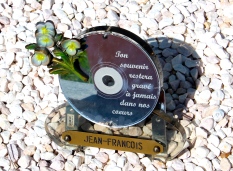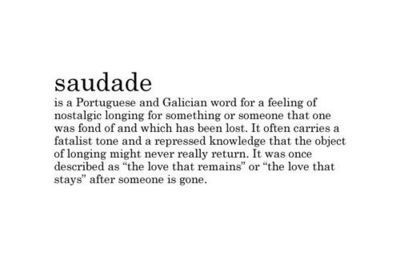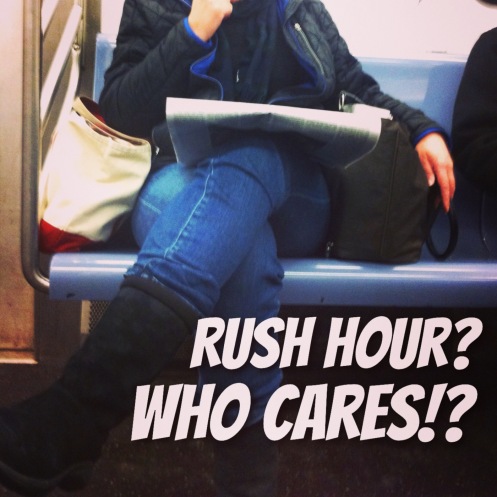I knew I’d never be able to write much about my mother while she was alive. It would be too complicated and potentially wounding to her, potentially destructive to our relationship. I never wanted to cause her pain, so I imagined it might be another 20 years before I could share anything about her or about our relationship.
But last year she unexpectedly and suddenly died – and, far from releasing me to write – I found that apart from a bit of journaling, I could not write at all – not about her, not about anything. There was just too much…
It’s now been exactly a year today since her death and I am trying to wade slowly back into sharing words. I must try to break off small pieces of ideas, so that I don’t get overwhelmed trying to capture so much that words become too flimsy under the weight, finally collapsing, sending me back into silence.
***
Today is September 8th, the one-year anniversary of my mother’s death. I am having a hard time grasping that this day has come, because the past year has not felt like a real year of actual time passing. It has felt like wave after wave of thoughts and feelings only lightly imprinted upon months and seasons, emotional experiences only lightly tethered to time and space.
It was windy today – I was walking through the Commons and the leaves started falling. It was the first time this year that I could see and really feel the seasons changing.
I have been anticipating this day for weeks – and now it is here and I am having a difficult time knowing how to make it right, how to give it the weight it seems like it should have.
I had this expectation that something would happen today – something more significant than on other days. It turns out however that I am missing her just as much today as many other days. So I feel like I am somehow failing her by not experiencing the gravity of her death on more profound level than ever before.
I think that if I want this day to be different from other days, I have to make the effort to infuse it with importance myself. And so I write.
***
I have no religion. I have no tradition. I have nothing to lean on to tell me what to do or what to believe when someone I love dies.
Since my mother died I have listened carefully when people of different beliefs have talked about the soul. Several people told me that in their faith the first 3 days after death were so important, because the soul was still connected to the body – but I wanted to reject that idea, because I did not even get to see my mother’s body until she’d already been dead for 6 days.
Someone else said 30 days, another 40 days, another 100. I kept bargaining with different traditions for more and more time. And finally I heard 1 year, and something in me clung to that.
I have held on to that that idea – that she would be hanging around the planet all year – so I could feel like I still had some time left, some months to find a way to her, to learn how to communicate with her, reach her, feel her out there.
***
In Joan Didion’s The Year of Magical Thinking, a memoir of the year following the death of her husband, John Gregory Dunne, she describes a kind of superstitious state of mind she entered after Dunne’s sudden heart-attack.
“I see now that my insistence on spending that first night [after his death] alone was more complicated than it seemed, a primitive instinct. Of course I knew John was dead. Of course I had already delivered the definitive news to his brother and to my brother and to Quintana’s husband. The New York Times knew. The Los Angeles Times knew. Yet I was myself in no way prepared to accept this news as final: there was a level on which I believed that what had happened remained reversible. That was why I needed to be alone…I needed to be alone so that he could come back. This was the beginning of my year of magical thinking.”
Weeks after his death for example, she gave his clothes to charity but couldn’t bear to give up all his shoes because, she thought, “He would need shoes if he were to return.”
I empathize with this dual state-of-mind – understanding loss has occurred on the one hand, but not believing it is unequivocal, feeling instead it is probably conditional.
***
We can know factually someone has died, but the way we feel can be much more primal, primitive and superstitious. And I have been so grateful for that.
SUPERSTITION: Middle English: from Old French, or from Latin superstitio(n-), from super- ‘over’ + stare ‘to stand’ (perhaps from the notion of “standing over” something in awe).
To stand over something in awe. Part of me stands apart from logic, from chronological time that only moves forward, from death being absolute, and looks outwards, waiting for the awe, waiting for the magic. Not trusting in it completely, but tentatively thinking maybe, yes maybe, oh please maybe, could it be?
***
It’s in moments like these that I get these flickering reminders of how much of me is rooted in something not logical, not reasonable. Something deeply fanciful, willfully credulous.
When I was 7 or 8 I read that unicorns ate rose petals – so I would regularly go to the backyard and pick roses, break break them apart, and fill the birdbath with petals. Then I would sit in the shadows and wait.
But, as far as I know, a unicorn never came. I couldn’t allow myself to consider that it might be because unicorns don’t exist…so it had to be through some fault of my own. I must have not tried often enough, or maybe I went to bed too early, was too impatient, too noisy.
Maybe it was some fundamental lack in me – I wasn’t pure and appealing enough in some way; not the right Maiden Fair. Or maybe I didn’t quite BELIEVE hard enough, completely enough. Maybe it was the sliver of doubt in me that I could never seem to dislodge from any of the things I tried or wanted, even at that age.
And every day that I failed to attract a unicorn, I wondered how long it would be before I ran out of time.
In The Lion, the Witch and the Wardrobe – many sad things happen, but for me the largest heartbreak is the idea that Peter and Susan lived this whole incredible, beautiful, magical life and then go back through the wardrobe doors, and have it all taken away, even the memory itself, as they grow into normal adults, grow up a little too much to believe in magic.
I spent a lot of my childhood in a state of desperation, hoping to find magic before it was too late.
I chased rainbows in a search for leprechauns and pots of gold in the golden, oak covered hills behind my house. I looked for fairies, unicorns and elves.
I tried to fly with paper wings, jumping of tall ledges and the top bunk, so sure that if I believed enough and jumped just right and timed my flapping arms to the moment, that I would take off – that I spurn gravity, rising up instead of dropping endlessly down.
But time after time I found myself on the floor. And I wondered – did I need stronger materials? Was the timing of my flapping arms off somehow? Or was it just quite simply that I did not believe enough? Was I already too much like a grown-up, who doesn’t experience magic? Not because it isn’t real, but because grown-ups aren’t willing to believe in it enough to see it.
***
SARAH: “SAY YOUR RIGHT WORDS,” THE GOBLINS SAID,
SARAH: “AND WE’LL TAKE THE BABY TO THE GOBLIN CITY,
SARAH: AND YOU WILL BE FREE.”
GOBLIN: LISTEN! SHE’S GOING TO SAY THE WORDS.
SARAH: I CAN BEAR IT NO LONGER!
SARAH: GOBLIN KING! GOBLIN KING!
SARAH: WHEREVER YOU MAY BE,
SARAH: TAKE THIS CHILD OF MINE FAR AWAY FROM ME!
GOBLIN: THAT’S NOT IT!
GOBLIN: WHERE’D SHE LEARN THAT RUBBISH?
GOBLIN: IT DOESN’T EVEN START WITH “I WISH”!
***
Out of all the thousands of words and millions of ways they can follow each other – all the incantations, spells, actions, movements of the hand, movements of the heart – how can you actually know how to break a spell or cast one, how to send someone away or bring someone back?
On the anniversary of her death, I wonder if my mother’s soul is just waiting there, waiting to be invited in – and I either don’t know the words, or don’t believe in them ENOUGH for it to work.
Maybe if I could TRULY suspend disbelief, the door would open.
I don’t want this first year to come to an end because it feels like I will have somehow missed the opportunity – and this day will end, and then some door will have closed forever. Like growing too old to go through the wardrobe.
I fear that I am letting her slip away, losing her all over again.
***
Nick Cave’s 15 year-old son, Arthur, accidentally fell off the Brighton cliffs to his death in June, 2015. Cave just released an album today (Skeleton Tree)- much of which circles around and around that brutal grief, a kind of grief I hope to never fully be able to imagine or understand.
Cave sings:
“I used to think that when you died you kind of wandered the world
In a slumber til you crumbled, were absorbed into the earth
Well, I don’t think that any more”
And in a later song:
“All the things we love, we love, we love, we lose.
It’s our bodies that fall when they try to rise–
Here they come now, here they come
Are pulling you away
There are powers at play more forceful than we
Come over here and sit down and say a prayer
A prayer to the air, the air that we breathe …
Come on now, come on now Hold your breath while you’re safe
It’s a long way back and I’m begging you please to come home now
Come home now.”
***
Should I light a candle momma? Should I say words and wave my hands? Should I make some kind of sacrifice? Would you come to me then?
What should I do? What should I say?
What am I missing?
Is this my last chance? Have I just not tried hard enough – and that is why I lose you in the end?
Did you die because I didn’t try hard enough? Because I never knew the right words to make you want to stay?
I’m begging you please, to come home now.
***
Dear Momma –
This is the best I can do.
I don’t know how else to make you live again, besides writing.
Writing about you, about myself, about us…
It’s what I will keep on doing until I learn some other, even more potent kind of magic.
***












 So I went inside.
So I went inside.











































World Cup Showdown Part 3: Sporting Subjectivity and the Fun of a Little Hate
•July 18, 2014 • 3 CommentsThis is Part 3 or a four part series narrating the entire story of the 2014 World Cup as a game fought between the Beautiful Game and the Ugly Deception. I invite you to read (or at least skim!) Part 1 and 2 first for a bit of context.
It’s halftime!
Now for some commercials…
Just do it…Impossible is…Everywhere you want to be…people are going to hear…sound matters …Hello tomorrow…be good to yourself…i’m lovin’ it…just…buy it. Buy it…just buy it…just buy it…
Cup O’Noodle Soccer Samurai
Just Buy It.
Nike…Adidas…Emirates…McDonalds…Beats…Sony…Visa…and on….and on…
The money involved in football is beyond fathomable. World Cup Brazil will generate $4 billion in total revenue for FIFA – the vast majority of the money will come from the sale of television and marketing rights. FIFA’s major partners reportedly pay $25-50 million per year for the privilege. While life-changing and even life-saving technologies have trouble finding funding, subsidies for the arts are drying up and become a desert landscape, education and healthcare get continuously leaner fare – sports grow ever fatter. But we understand – money likes to hang out where money already is… it’s a demographics thing.
And some World Cup related news…
US Right Wing Pundits Say Growing Popularity of Soccer is Clear Sign of National Moral Decay and Government Conspiracy
One of the best things about the World Cup this year was hearing right-wingers like Ann Coulter froth at the mouth about the degradation of American culture evidenced by the increasing interest in soccer or Fox News pundits suggest the World Cup was a clever ploy designed to distract Americans from Obama’s leadership failures.
“I am suspect because, here’s the thing. Why, at a time when there are so many national and international issues of such prominence — I’m a little suspicious of yet another bread-and-circus routine. Let’s roll out the marijuana, pull back the laws, and get people even more crazy about yet another entertainment event.” – Dr. Keith Ablow
I have found the increased interest in and passion for the World Cup in the United States exciting. It’s not often that my country of birth takes part in something as just a regular country. No reference to that whole awkward Superpower thing. The US in the sports arena sometimes seems like a spoiled only child that never learned how to play with others, and has gotten used to having its own sandbox all to itself. So it’s really pleasant watching the country play with the other kids around the block and learn how to share the glory.
Algerians So Happy To Get to Round of 16 That They Burn Cars
We have to admit – usually sports are a far less harmful way of competing than warfare. Standing behind your team and hating the other competitors is a relatively harmless method of finding something to love and hate, something to care about, something that stimulates emotion. The exception is when the hatred becomes genuine and translates into the real world. When anger over a loss turns into violence, or happiness over a win becomes an excuse for vandalism, rioting or worse.
Violence in the name of sports is not often actually rooted in the sport itself. It usually has social, economic, historical and sometimes racial or religious reasons that stretch far beyond sports but end up intertwined with them, using them as an excuse for agresssion.
Research has linked the World Cup not just to general violence, but to domestic abuse. One study revealed that in one force area in England and Wales, violent incidents increased by 38% when England lost – but also rose by 26% when they won.
Men don’t abuse women because of soccer. Men don’t abuse women because of what the women have done, nor do they abuse them because of what their team has done -these are excuses. People become abusive because of complicated histories, childhoods, brain chemistry, and/or perhaps a general rage against the machine etc. But that rage wants an outlet and looks for any reason. Sports fuel intense emotion and allow people to push past restraints within themselves. This means people weep and laugh and scream and bounce up and down because of games. This also means they are more liable to beat their partners or attack people and property.
The ills are deep, and football can push the poison and pus to the surface in grotesque and terrifying ways.
But figures from Surrey Police saw a 15 per cent reduction in the number of domestic violence incidents reported during this year’s World Cup compared with the tournament four years ago. So…umm…yay…?
Cameroon are to investigate claims that seven of their players were involved in match-fixing at the World Cup
Cameroon’s soccer federation announced late Monday that it would investigate its World Cup team for match fixing, paying particular attention to a heavy defeat by Croatia in the opening round. “Last year Europol alleged that more than 380 professional matches in Europe and more than 300 matches played in Africa Asia and central and South America were under suspicion as the scale of the activities of match fixing gangs from eastern Europe and Asia became clear.”
There it is – the real dark underbelly of this sport. When the curtain is drawn back at moments like this and you see into the world of match fixing, mafias, corruption and so much money moving around it’s easy to get a bit dizzy, a bit spun around. Is this a real sport or a reality show with actors playing athletes, referees and coaches. And who are the directors, the invisible puppeteers? How much is real and how much is just for show? And if this is not a true sport, if money is the thing that is deciding the outcome so often, why do we still care? Why do we still feel so much?
Well it’s a good thing all of this news went down at the halftime, or the Beautiful Game would be suffering another goal concession. As it is – no one seems to be paying much attention…
And we’ve returned for the second half! Brazil has the ball – but the players aren’t moving it at the moment. They appear to be collectively kneeling on the ground, praying, gesticulating to the heavens.
Is God a sports fanatic? Does God think football is important enough to nudge one way or the other? Maradona and all of Argentina think so. And apparently Brazil does as well – they have been the most flamboyantly religious team in the cup so far. Perhaps they think that buttering God up is the only way they really have a chance. But if God won’t help out- maybe FIFA will.
I think it’s hilarious when both sides – both the teams and the fans – are aggressively praying. How can God possibly choose sides? Does he tally the prayers up and base the winner on quantity – strict number of fans praying for a goal? Or are there some points for style as well? Gesture and facial expression points, flowery words, what about a bit of singing? Surely a corner at least for singing of prayers.
The Dutch take to the field – horned helmets on, teeth bared – ready to do battle and win, whatever it takes.
I really try to be fair-minded. I really really do try see things from multiple, complex perspectives. I don’t always succeed – but I do almost always try. When Zinedine Zidane famously head-butted – I didn’t want to villify him so much as understand what on earth drove him to that level of confrontational anger and physicality in such an important moment. With Luis Suarez I am curious about his childhood and his fears and what wells up inside of him and gets unleashed when he stops thinking and impulsively bares his teeth down into another human being’s flesh.
But…every now and then I enjoy giving my empathy muscles a little break. I let myself get comfy and squat down in some arbitrary and probably pretty unfair dislike for something or someone.
Because sometimes…sometimes it’s really fun to just let yourself hate someone for awhile. Not think about the complex human being under the 2-dimensional media creature.I love to be allowed, briefly to have an enemy.
There’s some kind of cathartic release in being AGAINST someone or something. Football occasionally provides me with this opportunity. I love being able to believe in a bad guy and hope for his comeuppance.
Every World Cup there is one team or two that gets to be that bad guy for me. The Dutch have held that place of honor now for not just this World Cup but the last World Cup and Eurocup as well. They have become the team I love to hate. Whether it’s for their nasty brutal physical tactics meant to damage the other players or at least make them fall or whether it’s the theatrical Oscar-worthy diving, or whether it’s the hyena like speed and the feeling of true danger that they produce in viewers when they make a break for it down the field. Yes the Dutch win my award for Most Loathable Team. And Robben for most loathable player.
Mexico is dominating the game folks and the previously formidable Dutch haven’t found a way to strike. Time is running out… oh and there it is, the classic Dutch move – the one they’ve drilled time and time again, and tried already so many times this tournament. Let’s see if they can pull it off…Robben runs run to the penalty box, dives and screams…and YES! The Referee has been moved by the tormented anguished flopping Robben has practiced so diligently. It will be a penalty kick…and GOOOOOOOL GOOOOOOOOOOOOOOOOOOOOOOL FOR THE UGLY DECEPTION. CAN YOU BELIEVE THIS? A goal for theatrics! An oscar-winning goal! The score is now 2-2!
I was sitting in a bar with two Venezuelans and a Dutchman. The Venezuelans and I were rooting for Mexico and the Dutchman was of course decked out in orange and rooting for his team. When Robben scored the 2nd Dutch goal, this man did not smile but shook his head sadly. He said, “I do not like winning that way. Yes of course, like anyone I want to see my team win, and continue into the next round. But no, it doesn’t feel good, winning this way.”
Costa Rica doesn’t lag in whisking up the ball and whizzing past the Greeks . The Greeks can’t seem to do much of anything. And now it’s too late. The Greek fans in the audience are weeping.
I admit it – I love watching people cry at the World Cup. Ok not the kids. But yes the grownups. Not because I am happy to see them sad – actually it usually makes me cry too. But I do really value seeing people expressing grief openly for all to see. I think collective grieving is healthy and it’s not something we partake in all that much in most cultures anymore.
This is particularly true for men. When else do we see men openly weeping? Tears streaming down their faces? Players who have just lost a game and know they are going home, heads bent to the earth or tears falling on each others shoulders as they embrace? Fans wailing gushingly, the flag colored paint dripping down their faces in little colorful rivulets?
The World Cup creates an environment in which riotous joyful celebration and terrible, wracking, gut-bursting grief are totally acceptable forms of expression. There is no shame to the expansiveness of these feelings. In fact there is a certain pride in them – that fans care so much and feel so deeply.
That’s part of my theory as to why people love sports – it allows them to feel and express more heightened emotions than in their daily lives. It’s a kind of high where they feel more alive than usual. There’s something almost holy, almost divine in that.
I just wish men could weep outside the arena. I wish people could get this collectively passionate about living their real lives…and let the joy and sorrow fill them and move them. So that they could feel THIS alive more often. And over things that really, truly matter…
Algeria has appeared from nowhere and seems to be making a challenge against the Germans. Well this is a surprise – they are pushing, pushing towards the goal. The Germans don’t seem to quite know what to make of the situation nor how to respond.
The team that was considered to be one of the weakest in the tournament is putting up one of the biggest challenges to perhaps the best team in the tournament. You just never know.
You can have two good friends that are kind and mild-mannered – but when they meet rub each other the wrong way and bring out the worst in each other. Every boyfriend or girlfriend or friend for that matter that you ever have will bring out different facets of your personality and vice versa – highlighting certain things and shading in others. We are not just ourselves but ourselves reflected in others. We all transform each other in every interaction. We are fluid creatures, tuned to the vibration of the people around us, sounding different notes and different melodies as we play through life together.
And football teams are no different. The World Cup is gorgeous in this way because the personality of each team – their skills and weaknesses and then the specific lineup chosen by the coach that day, the injuries, the moods – all of these things mix in strange and sometimes unpredictable ways.
Germany was a different team with Algeria than on any other day. They had to really really work for the win they finally achieved, and Algeria could walk away knowing that they had held their own on the world cup stage and shown that ranking is always relative.
Argentina and Switzerland pass the ball around and finally the Uglies steal it and shoot . The ball glances right off the goalpost. That should have been exciting but the fans don’t seem to notice because they are snoozing.
Sometimes football is boring. Sometimes it’s really, really boring. Sometimes neither team does much of anything and 90 minutes later you wipe the drool off your chin and wonder what you are doing with your life. Sometimes trying to get interested in a game is like trying to drag yourself into a really dense novel where the first 30 pages are mostly dates and names, no plot , no story, no movement. Argentina has played a lot of games like this this World Cup unfortunately. This kind of soccer where words are traded but nothing is said, is perhaps the worst kind of soccer. At least with the diving and grotesque cheating and violent movements there is some drama, some spectacle, something to get worked up about. This kind of game does the opposite of make you feel alive. It is anything but beautiful.
But again that’s part of the fun of soccer – you never know what you’re going to get!
Thankfully for our lagging attention and spirits, the game seems to be heating up a bit as Switzerland leaves the field, passing the ball to Belgium. And oh wow…they are pushing, they are on fire, they are charging down that field again and again. The US can’t seem to get hold of the ball.
This is an amazing game full of excitement.
Oh wait, no. This is actually a frustrating horrible game where one of the teams never seems to get a foothold and the other totally dominates.
It always looks different depending on your seats.
So much about the game depends on how much you as a viewer are willing to put in it. So much of it depends upon what you want to see
During one and the same game a person might accuse the referee of being too lax, while another might praise his forbearance. One person might say the game was one of the best and most exciting games they’d seen in a long time because there were so many shots on goal, so much action, so much drama, so many closeups of Tim Howard’s sweating, focused face.
Others might say that while it was an exciting game it was frustrating. It was one-sided. The other team’s midfield was a mess and they didn’t succeed in getting and keeping the ball. Exciting, but in that sort of miserable, pummeling way, like being stuck in undertow is exciting.
Shot after shot…the attack just goes on and on
There is something difficult and wonderful about caring about something and yet having no control over it and not actually being able to guess the outcome. Not having the story on paper yet. The beauty of the unwritten, unpredictable and unfolding.
Well it was inevitable – there’s only so long Tim Howard could hold out against a frenzied drive like that. The US is leaving the pitch.
And it’s over! The World Cup is over! Or at least that’s probably how most US fans feel. A lot of them aren’t quite up to watching the whole thing yet…
I was disappointed – but I felt a lot worse for some reason when other teams were knocked out. I think sometimes I feel more pain over other people’s suffering than my own, imagining how absolutely horrible they must feel. My own disappointment in comparison is quite manageable.
Water break! It’s hotter than ever here in Brazil. These players need some time to cool off after this rather second half.
It’s getting tense out here in this very close game… tied 2-2! There’s still plenty of time left for either team to win. It’s truly still anyone’s game… stay tuned for the Fourth and Final portion of the World Cup Showdown.
***
Part 1 and Part 2 of the World Cup Showdown can be read here:
World Cup Showdown Part 1: The Beautiful Game vs The Ugly Deception
World Cup Showdown Part 2: the Narrative Value of Soccer
Posted in Cultural Connection, Cultural Perception
Tags: Brazil, commentary, Culture, Football, Life, Soccer, Sport, sports, thoughts, violence, war, World Cup